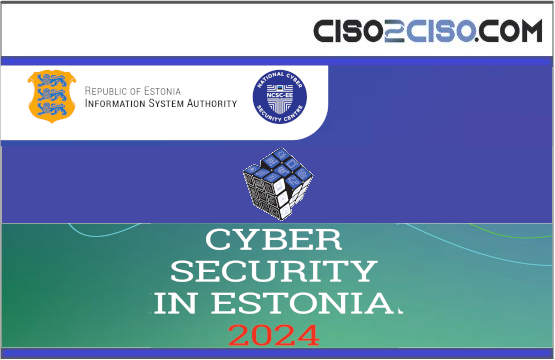In 2023, Estonia experienced an increase in cyberattacks due to geopolitical tensions, particularly stemming from the conflict between Russia and Ukraine. Estonia was also affected by international events, such as the Israel-Hamas conflict, which resulted in cyberattacks on critical infrastructure, including district heating systems. The overwhelming majority of these attacks were Distributed Denial-of-Service (DDoS), with a notable rise in their frequency and sophistication.
The document details several major incidents:
- DDoS attacks: The number of DDoS attacks skyrocketed, with 484 recorded in 2023—a 60% increase from the previous year. Some attacks were politically motivated, including those linked to Estonia’s support for Ukraine. One significant attack targeted Ridango, disrupting the country’s train ticketing system.
- Ransomware: Large Estonian companies, particularly in manufacturing, were targeted by ransomware attacks. A notable case involved two metal companies that lost millions of euros after their systems were compromised.
- Data breaches: Estonia also dealt with several data leaks. The most serious case involved the Asper Biogene company, where attackers stole the personal and health data of 10,000 individuals. Additionally, there was an incident where a software bug mixed up the medical records of hundreds of patients.
- Fraud: Phishing, telephone scams, and business email compromise (BEC) fraud also increased. Cybercriminals defrauded Estonian citizens of at least 8.3 million euros, with some schemes targeting businesses through compromised emails to redirect payments.
- Vulnerabilities: Zero-day vulnerabilities were particularly concerning in 2023, with incidents of attackers exploiting unpatched systems. Estonia stressed the importance of installing security updates and adopting preventive measures like two-factor authentication to counter cyber threats.
International Collaboration:
Estonia’s cyber defense was supported by its alliances with international partners. The document emphasizes the importance of collaboration and intelligence sharing between nations. Estonia’s National Cyber Security Centre (NCSC-EE) played a key role in these efforts, especially in response to attacks on critical infrastructure.
Cybersecurity Awareness:
RIA, Estonia’s State Information Authority, launched campaigns to raise cybersecurity awareness among both businesses and individuals. It also introduced the “Cybertest” platform, which offered training and testing for over 15,000 people from public and private organizations.
Looking Ahead:
The document concludes with a projection for 2024, expecting continued politically motivated attacks and a rise in sophisticated DDoS attacks. Estonia plans to further strengthen its cybersecurity posture by focusing on securing critical infrastructure and promoting digital resilience through collaboration with international partners.
Overall, the report highlights the need for constant vigilance, technological updates, and international cooperation in combating an ever-evolving cyber threat landscape.
Views: 13




















































